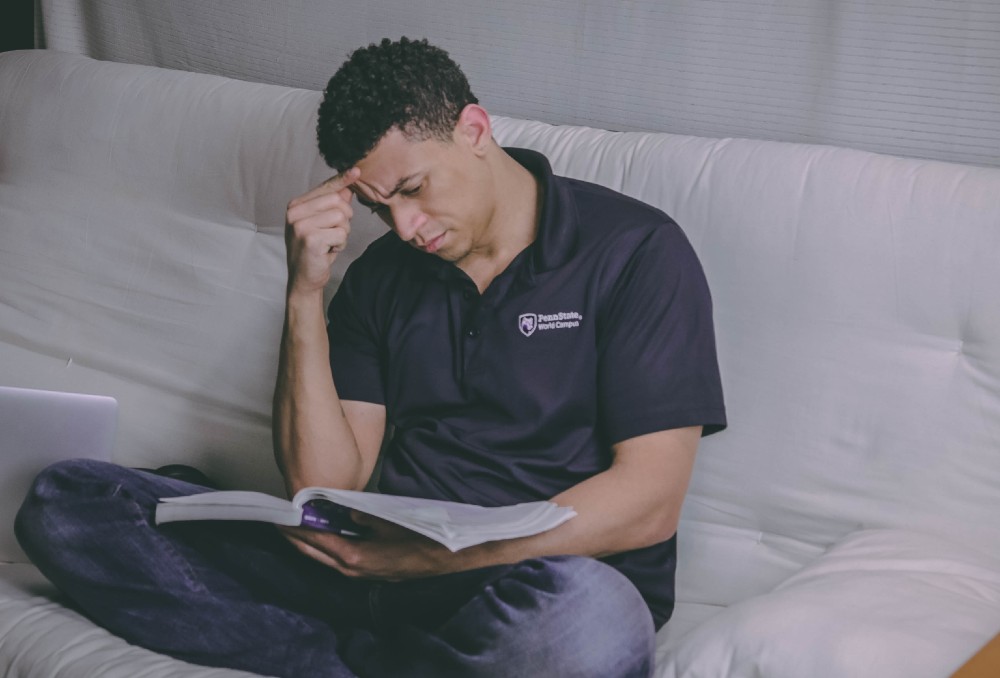
We are a reader-supported education publication. When you buy through links on our site, we may earn an affiliate commission to help us keep providing content.
Trying to find a scholarship for college can be overwhelming. Even if you plan to apply for scholarships and have done some research, you might feel like you don’t know where to start.
Check out this list of frequently asked scholarship questions below to answer your questions about finding a scholarship — or several.
What’s the Difference Between a Student Loan, Scholarship, Bursary and Other Forms of Financial Aid?
Student loans are offered either by financial institutions or by the government. They are to be repaid — with interest — after you graduate. Bursaries are awarded to students who show financial need. You can apply for them through your student financial aid office.
Scholarships are one of the more flexible forms of financial aid. They are awarded to students based on need or merit and can often be used at any school. They do not have to be paid back. Scholarship amounts range from a few hundred dollars to tens of thousands of dollars.
What Are the Different Types of Scholarships?
There are many different types of scholarships, including:
- Merit-based and contest-like scholarships. Some scholarships are for a specific skill or talent. For example, you may secure a sports scholarship if you excel at a certain sport. You may be awarded a scholarship if you enter and win a contest for music ability, writing, photography or another skill. Some scholarships are based on your field of study — like STEM scholarships or sustainability scholarships offered by specific organizations.
- School scholarships. Many schools offer a range of scholarships to attract applicants. School-specific scholarships mean you need to attend that college or school to get the money.
- Organizational scholarships. Some scholarships are reserved for members of a specific community or group. For example, if your parents belong to a country club that gives out scholarships, you may be eligible. Organizational scholarships are only open to a limited number of people, which is why it’s important to make a list of all of the organizations, communities and groups your family is involved with. Since only a select number of people qualify, your chances of securing money are better.
- Lottery system scholarships. With these opportunities, the winner is selected randomly.
Where Can I Find a Scholarship?
Many foundations and schools offering scholarships will advertise them. You can also use a listing service or coordinating organization like Classrooms to find scholarships you qualify for from a range of sources.
Do I Qualify For Scholarships if I’m Not the Best Student or Athlete?
Yes. There are so many scholarships that virtually everyone qualifies for at least something. There are scholarships based on artistic ability, writing talent or your skills in creating a video. Always look for a range of scholarships and apply for the ones you are eligible for.
How Early Should I Start Applying to Scholarships?
Start applying as soon as possible. Some scholarships are designed so even kids in grade school and students in high school can apply for them. You should start applying for scholarships early on – certainly by the time you start high school.
What Are the Best Sports to Play to Find a Scholarship?
Athletic scholarships are sought by millions of high school students every year. Scholarships for sports can ensure that you’ll be able to compete in your beloved sport after high school and earn money towards tuition while competing.

Many students may wonder what sports give them the best chance of receiving a sports scholarship in the first place.
Athletic scholarships are very competitive, with a total of 8 million high school athletes and only about 480,000 that go on to play a college sport.
However, some sports have a much higher likelihood of scoring you a sweet scholarship.
High Head-Count Sports
Most athletic scholarships availabe in the U.S. are awarded for team sports like football, basketball and women’s volleyball, but the amount of students going for these scholarships is also substantially higher than other sports — which gives you lower odds of being awarded.
Sports With the Best Odds
The good news is that there are several more specialized sports that offer much better odds of receiving a sports scholarship.
For Women
- Rowing 2:1 odds (50% chance)
- Equestrian 3:1 odds (33.33% chance)
- Rugby 9:1 odds (11% chance)
For Men
- Gymnastics 20:1 (0.5% chance)
- Fencing 22:1 (0.45% chance)
- Ice Hockey 36:1 (0.28% chance)
Unfortunately, the schools that offer programs such as rowing, equestrian sports and rugby are few and far between. Even sports like ice hockey and fencing can be deceiving since most of the offerings come from club divisions. If you attend a school that does offer one of these sports, however, you can greatly maximize your chance of receiving an athletic scholarship.
How Can I Apply for Scholarships As a Non-U.S. Citizen?
The immigration system is one of the most charged issues affecting our country today. However, even if you’re not a U.S. citizen, there are groups and statuses that may allow you to qualify for federal financial aid.
If you belong to one of these following groups, then you can qualify for federal funding as well as state funding and private loans or scholarships:
- U.S. national (including American Samoa or Swains Island Resident)
- U.S. permanent resident with a permanent resident card, resident alien card or green card
- Refugee status, Asylum Granted status or Cuban-Haitian entrant
- Possess a T-Visa for human trafficking victim
- Battered Immigrant status
However, the following non-citizens are not eligible to apply for U.S. federal aid:
- Illegal aliens or those with expired statuses
- Those with a DACA status — while they can’t apply for federal loans, DACA holders can still qualify for state loans, scholarships from colleges and private scholarships
For a more detailed look at student aid requirements and other resources to find a scholarship, please visit Federal Student Aid.
How Can I Find Scholarships As an Adult Learner?

With our ever-changing economy and your ever-changing goals, you might decide to return to college one or more times throughout your life — either for a more advanced degree or to gain experience in another field. More than 3 million American adults today are likely to return to college and graduate with a new degree.
This shift in our education system has produced numerous non-traditional students seeking aid. For adult students, it can often be more difficult to juggle the intricacies of life and determine how to pay for a degree, but these resources can help:
- Federal Aid: Fortanetely, there is no age limit for completing the FAFSA, and adult students are eligible for the full amount of student loans and Pell Grants.
- Alpha Sigma Lambda: This organization is the honor society specifically for non-traditional students, and the organization offers 12 unique scholarships. Students don’t need to be a part of the organization, but there are other requirements that are necessary, such as completing 24 hours of coursework and obtaining a GPA of at least 3.2.
- Unigo: This organization offers a scholarship worth $10,000, which only requires an essay of 250 words. There are numerous other scholarships available on the site as well.
- Federal Supplemental Educational Opportunity Grant (FSEO): Similar to Pell Grants, this type of aid does not need to be repaid.
- Return2College Scholarship: With awards of 1,000 dollars per student, this scholarship is available for both undergrads and postgrads. The only requirement is a three-sentence response to a writing prompt.
- Imagine America: For any students over the age of 21, there are awards of $1,000 available. The only requirement is to become a member of Imagine America.
Take Control of Your College Experience — Find a Scholarship Today
Completing your degree and paying for college is possible — with the advice from these scholarship FAQs, you can take control of your finances and your future.









